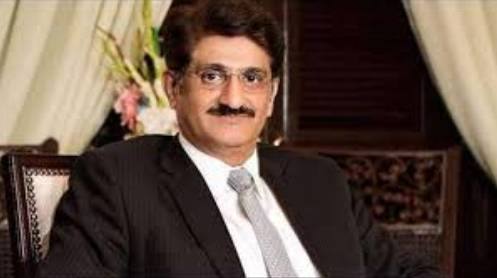KARACHI (Feb 24): Sindh Chief Minister Syed Murad Ali Shah has taken a significant step towards poverty alleviation and inclusive rural development by signing a $5 million agreement with the European Union through the Sindh Peoples Housing for Flood Affected (SPHF), initiating the PAIDAR project – a Communal Infrastructure Grant Agreement.
In collaboration with the United Nations Industrial Development Organization (UNIDO) and funded by the European Union’s PAIDAR program, the Sindh government is launching initiatives focused on climate resilience and sustainable development.
The signing ceremony was held at the Chief Minister’s House, chaired by Syed Murad Ali Shah, and was attended by senior government officials along with representatives from the European Union and UNIDO.
The Chief Minister emphasised that the agreement reflects his government’s commitment to sustainable rehabilitation, ensuring that communities not only recover from past devastations but also become stronger and better prepared for future climate challenges. This landmark initiative aims to restore flood-affected districts by reinforcing infrastructure, rebuilding communities, and stimulating economic recovery.
The Sindh People’s Housing for Flood-Affected Individuals (SPHF) is already leading the world’s largest post-disaster housing reconstruction initiative, with 2.1 million climate-resilient homes currently under development. Murad Shah stated that the agreement builds on this momentum by introducing innovative projects that incorporate green technology, digital mapping, and sustainable infrastructure to transform the affected regions.
According to CM Murad Shah, the major initiatives under the Grant Agreement include the Green/Good Bricks Pilot Project, with a budget of Rs 9.9 million. This project will establish an eco-friendly production plant in Thatta in collaboration with InnoCSR (Korean entrepreneurs) and marks a milestone in sustainable construction materials.
Additionally, the Drone-Based Survey and Climate-Resilient Settlement Plan is set at Rs 55.44 million. “We are conducting GIS mapping across Thatta, Sujawal, Badin, and Tharparkar, covering 13,846 households to generate critical socio-economic data,” he noted. He also mentioned that the GIS & Multi-Dimensional Poverty Index (MPI) Dashboard will serve as a real-time digital platform for data-driven planning and rural development in Sindh.
Further, the agreement includes communal infrastructure development funding of EURO 5 million to enhance public infrastructure across 150-173 villages, improving access to essential services.
The Model Village Development in Lahko Bhambro, District Thatta, with a budget of EURO 0.2 million, is currently 40% complete. This project aims to set a blueprint for climate-resilient villages, with plans for completion by April 2025.
Regarding the Carbon Credit and Green Growth Initiatives, the Chief Minister stated that they are providing technical assistance to unlock funding for carbon credit programs, which will support long-term environmental sustainability.
“We started with housing and demonstrated that large-scale rehabilitation is possible,” the Chief Minister remarked. He added that the efforts are now expanding beyond housing to develop supporting infrastructure that will benefit communities for generations.
“For the first time, we have digital village maps that offer real-time insights into needs and future development. With partners like UNIDO and the European Union, we are not just rebuilding; we are strengthening communities to thrive in the face of climate challenges,” he concluded.
This historic collaboration between the Sindh government, the European Union, and UNIDO marks a new era in climate adaptation, sustainable development, and economic resilience. Through strategic investments in climate-smart infrastructure, digital mapping, and eco-friendly innovations, Sindh is leading the way in disaster recovery and sustainable growth.







